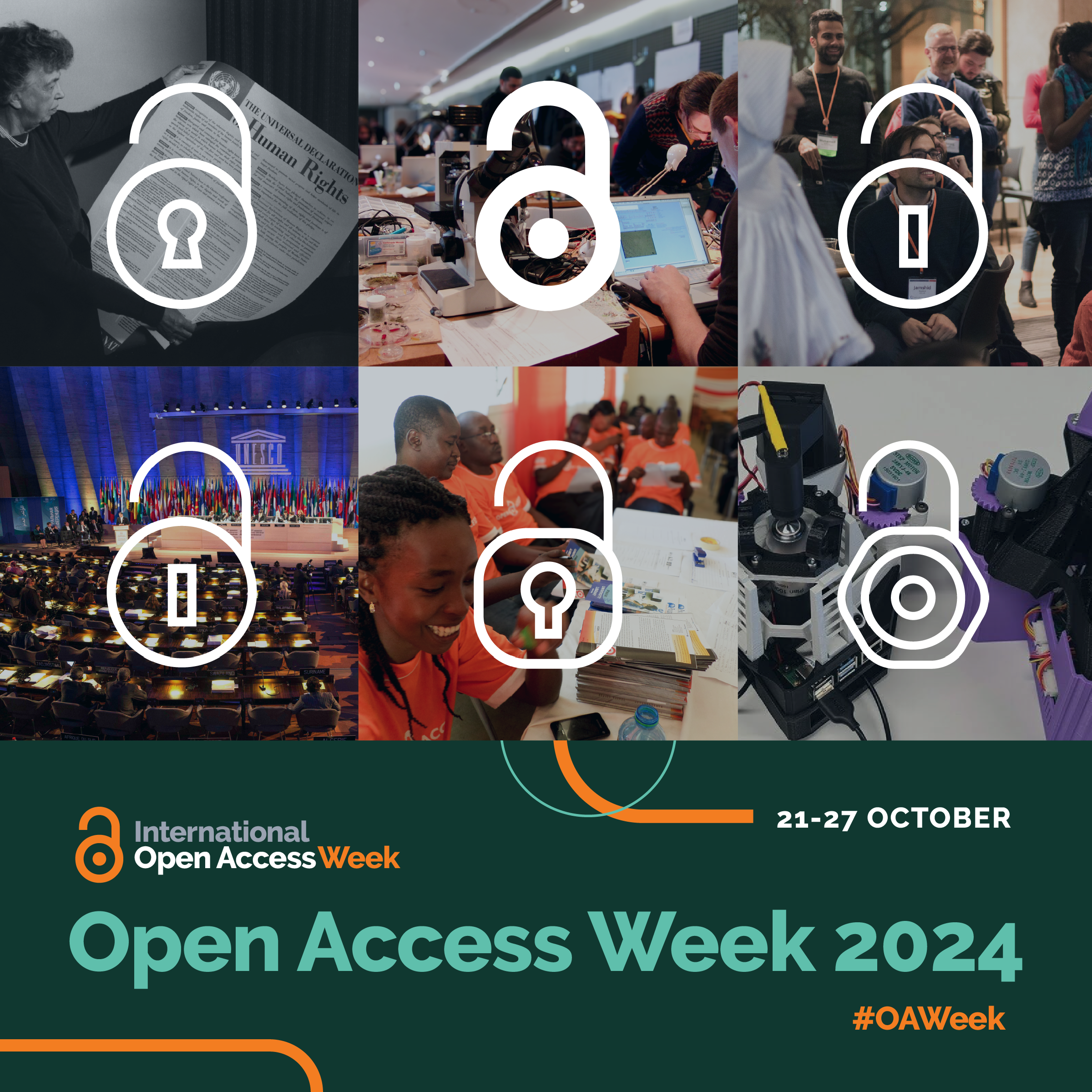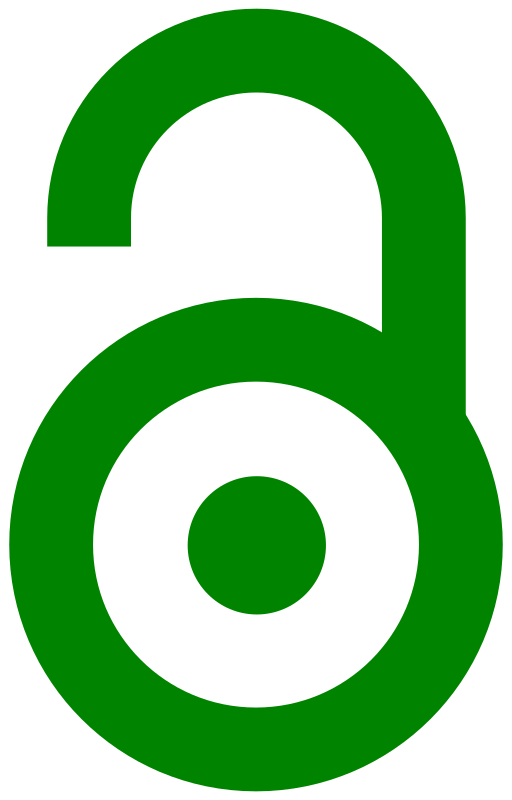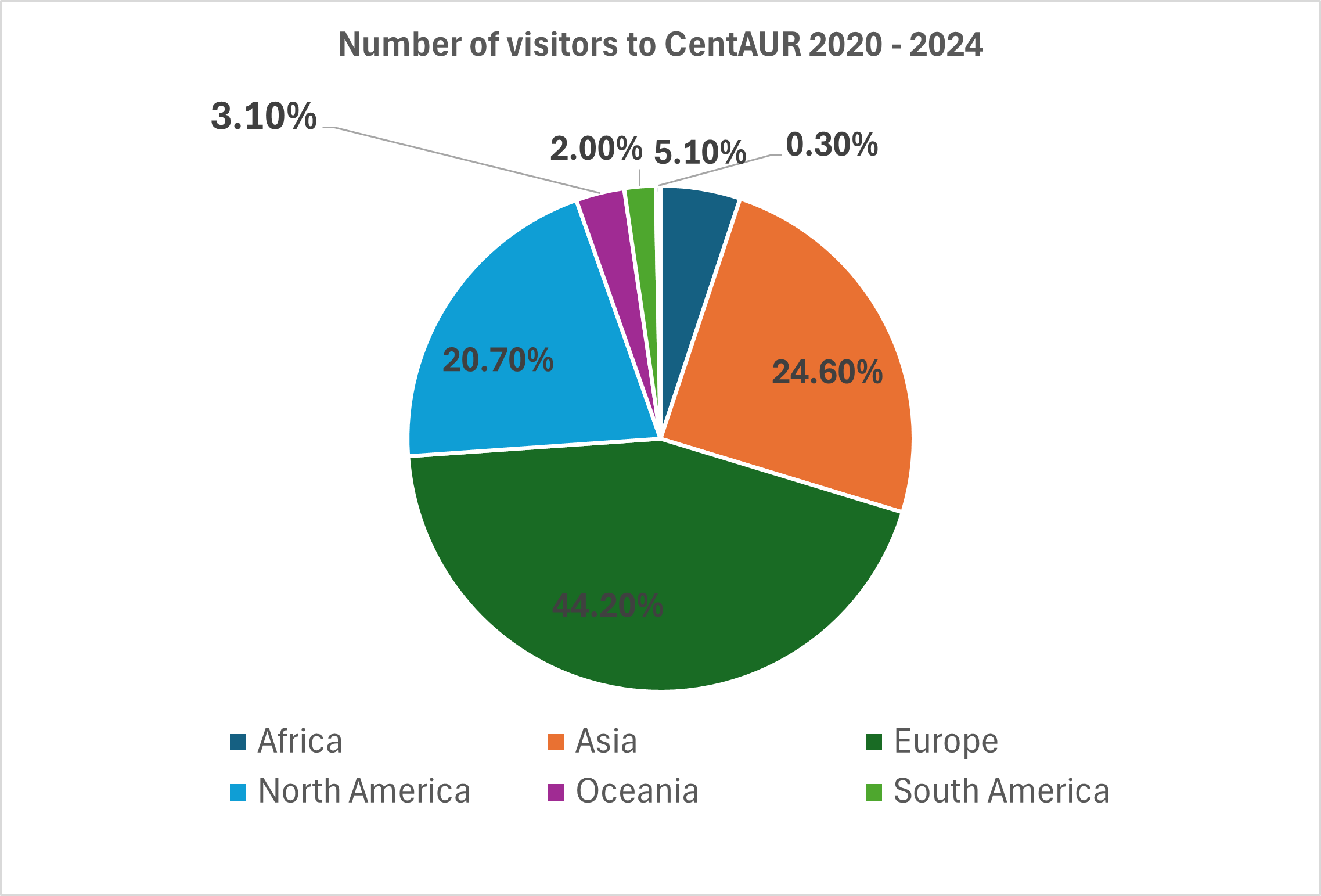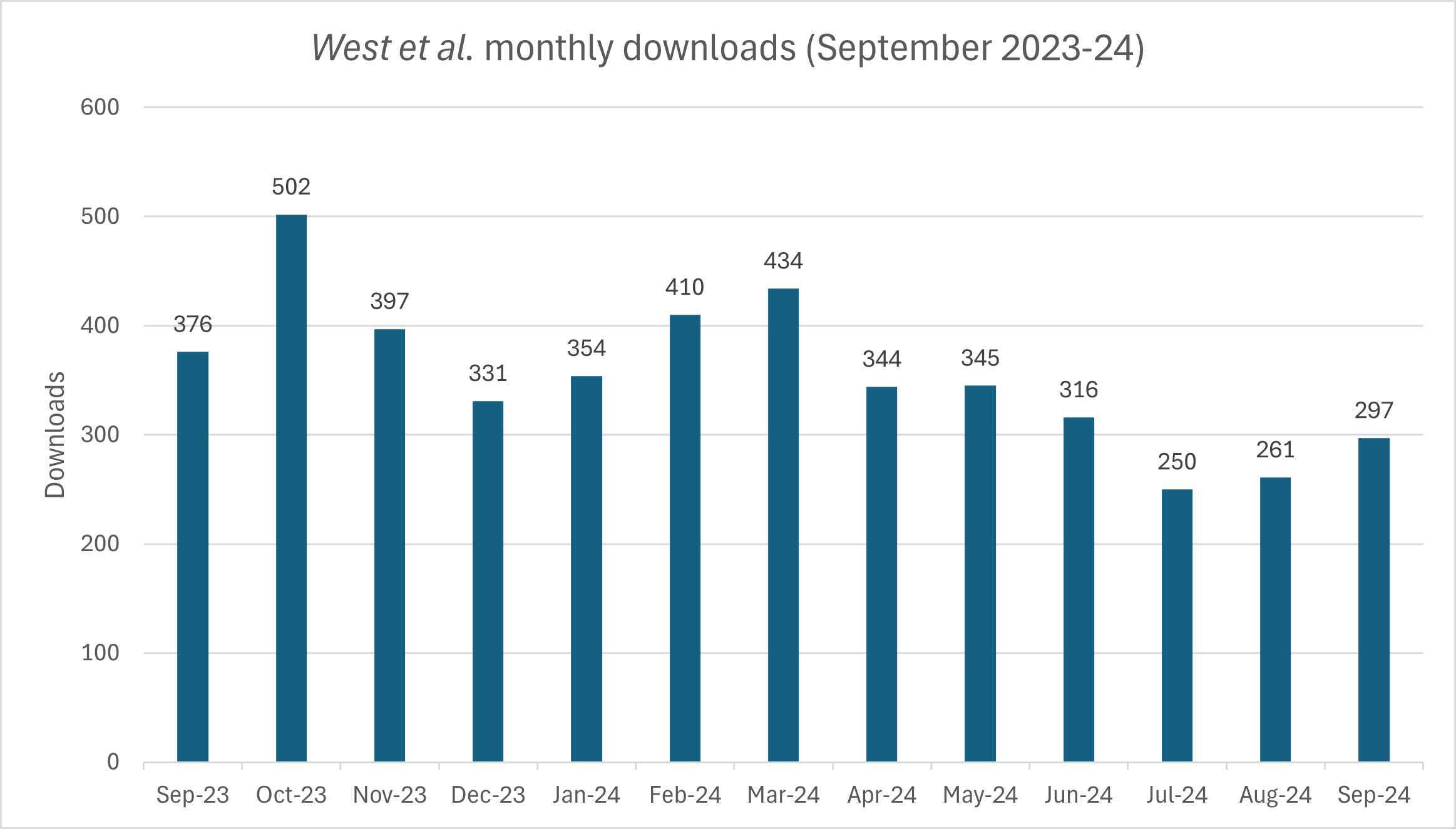
From its beginnings as a ‘National Day of Action for Open Access’ in 2007, International Open Access week has been promoted and expanded by libraries, publishers and other organisations. The week, at the end of October, is a chance to celebrate and advocate for improved free access to research. Here Karen Rowlett reflects on what this means for us as a research community and possible future developments. She also provides encouraging data on downloads, demonstrating how important Open Access is for our research profile and reputation.
Breaking down barriers to knowledge and making research findings available to researchers and the general public is a fundamental principle of the Open Access movement. Open Access democratises access to research for those working or studying in underfunded institutions or in low-income countries.
In recent years, researchers have become accustomed to paying publishers to make their work Open Access under Creative Commons licences (gold Open Access). The growth of ‘Read and Publish’ and transformative agreements from the big academic publishers and Open Access mandates from funders has changed the landscape of Open Access in the UK. For the University of Reading, around 60% of journal articles were published as gold Open Access in 2023, mainly as a result of publisher deals. Open Access for long-form research outputs such as books, monographs and book chapters remains a challenge and while funder mandates are now in place, the costs for gold Open Access can be exorbitant.
Whether this boom in gold Open Access will continue is debatable. Increasingly strained University library budgets may not stretch to expensive publisher deals in the future and the funding from UKRI to support Open Access may not continue indefinitely. However, the option to ‘Go Green’ and use an alternative free route to Open Access is still available for researchers.

At the University of Reading, the CentAUR institutional repository contains a huge collection of peer-reviewed outputs from our research community of staff and students. Launched in 2010 when gold Open Access was much less common, the repository relies on the green Open Access (free) route to make the final author manuscript versions of peer-reviewed outputs available to readers around the world. Many publishers allow the accepted versions of outputs to be made available by this route, although there is often an embargo on their release for up to 2 years after the publication of the version of record. Around 2,500 new items are added to the repository each year and there are now over 58,500 records in CentAUR, including journal articles, reports, monographs, books and book chapters, conference proceedings, theses, audio and video outputs and exhibitions.
The content in CentAUR is used by thousands of visitors from around the world. Thanks to the rich metadata added by the CentAUR team, the content is so well indexed by other services such as CORE and Google Scholar, that users often find items in CentAUR more easily than at the publisher’s website. Since 2020, there have been over 5.5 million views of CentAUR records and a staggering 3.7 million downloads of full texts. Journal articles are the most downloaded type of output with 2.8 million downloads, and theses from our PhD students are also heavily downloaded with an impressive 290,000 accesses. Making full texts freely available increases the exposure of the University’s impressive research portfolio to users around the world.

The majority of the visitors to CentAUR are from the UK (24%), USA (17%), China (6%), India (4%), Germany (4%) and Australia (2%). However, since 2020 downloads have been recorded from 238 different countries and territories demonstrating the global appeal of Reading’s research. Looking at areas in the World Bank’s lowincome economies, since 2020 there have been over 40,000 views of CentAUR content and almost 33,000 downloads from these countries. Providing access to peer-reviewed content for researchers and readers without expensive journal subscriptions is one of the key aims of the Open Access movement and it is gratifying to see research from the University of Reading community being made available to these readers.
Engagement with CentAUR is high across our research community. Since 2020, over 1500 researchers have added their outputs to CentAUR. This includes significant numbers of peer-reviewed publications authored or co-authored by our students. Since 2020, there have been 1625 items with postgraduate research authors, 113 items with Masters’ students and, thanks to schemes such as UROP research internships, 136 items with undergraduate authors.
The cost of gold Open Access is considerable and probably unsustainable in the long term, so it is important that the green Open Access route via CentAUR remains a viable option for researchers. With changing political and economic priorities and a growing unease about excessive publisher profits, it is possible that green Open Access may become mainstream policy for universities in the future. At least 30 UK universities have already adopted rights retention strategies that allow authors to make their accepted works available immediately in repositories without the imposition of publisher restrictions on access.
Open Access, regardless of the route, is recognised as a significant contributor to University of Reading’s Open Research agenda and it is important that our researchers continue to ‘act on acceptance’ and deposit their texts into CentAUR as soon as possible after their work is accepted for publication. By doing so, researchers can be reassured that their work is accessible to all and can be used to accelerate the pace of research and help educate and train the researchers of the future.
Did you know that the number of downloads for a given item can be seen on the relevant CentAUR page? Take a look at the huge downloads for one of the most popular items in CentAUR, a paper by Professor Emily West et al. West, Emily and R. J. Knight. “Mothers’ Milk: Slavery, Wet-Nursing, and Black and White Women in the Antebellum South.” Journal of Southern History, vol. 83 no. 1, 2017, p. 37-68. Project MUSE, https://dx.doi.org/10.1353/soh.2017.0001.

Karen Rowlett is the Research Publications Adviser and is based in the Research Engagement team in the University of Reading Library. After completing her PhD, she worked for over 25 years for several different publishers as an editor and managing editor before returning to University of Reading.
